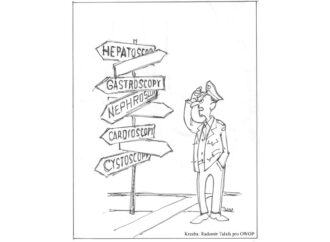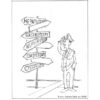 Europe has been going through immensely wide variety of discussions on how to deal with its own economic crisis. A French Socialist President follows the argumentation line of enhancing growth while German Chancellor sticts to austerity cuts. How does it affect view of Europe from the outside, especially from Asia?
Europe has been going through immensely wide variety of discussions on how to deal with its own economic crisis. A French Socialist President follows the argumentation line of enhancing growth while German Chancellor sticts to austerity cuts. How does it affect view of Europe from the outside, especially from Asia?
This world today is very interdependent and interconnected so if Europe prospers, it has a positive impact on the rest of the world. And when there is a massive crisis in Europe, the whole world can feel it as well. This is mainly because Europe is a big market and economic growth is to a large extent conditional on trade, imports and exports. I think Asia is very concerned about the economic troubles in Europe. There is concern that the Eurozone might unravel, that Greece may leave the eurozone, some also feel that Germany is being too demanding in its calls for austerity. At the moment, there is also increased between those Europeans who want the focus on growth – such as the new French President Francois Holland who are saying enough of belt tightening and others led by Germany who are focusing almost solely on austerity and budgetary cuts.
All these tensions are not good for the image of Europe but also for the people of Europe, especially young people who are suffering a great deal because of unemployment. Asia went through its own crisis in 1997 and at the time Europe focused on giving lessons to Asians. There was very little European solidarity for Asia. But times have changed – Asia is not indifferent to what is happening in Europe. China – which for many people symbolizes Asia – is buying eurobonds and sovereign debts and continuing to import large quantities of European goods.
We live in a world where everything is connected – when one country falls, everybody will feel it. It is a domino effect – that is why America is also concerned. Europe is in the eye of the storm and everybody is watching. I honestly feel that good sense will prevail, but at the moment I think that the European politicians need to dig deeper in searching for solutions.
You have mentioned China buying eurobonds and also part of Greek debt. Some view it as a potentional threat and feel besieged by emerging tiger. Are these concerns appropriate?
China’s rise is certainly not a threat – in fact, what Europe and more generally the West has to get used to is the change in power politics. The West is not the uncontested leader of the world any more. At the moment we live in a multi-polar world where countries have to look at how to achieve win-win solutions. We no longer play zero-sum games. So Europe has to get used to the power and position of Asia which is rising, confident, in a good shape and knows what it wants.
Another issue is the European public – European leaders has been sending a very negative message about globalization ..
.. to be afraid of China?
Yes, China means Asia for many people. It is a very strong message with negative connotations – instead of frightening people, European politicians should be talking about a win-win situation with emerging China. European politicians spread the false message that China is taking away European jobs and buying up Europe and these sorts of things. This message is not based on the reality of this world – the view of Chinese investments as a threat to Europe is completely wrong.
We are living through a transitional period where we are all getting used to rise of China.
Your work strongly focuses on the role of Europe in global order. Could you comment on the use of soft power by the Old Continent as a whole in recent years?
Europe has a very strong asset in its soft power tools – the only problem is that it does not use it in the right way. It uses it to lecture other countries, for instance on human rights and democracy instead of encouraging change from within, by support civil society groups and advocates of transformation. Europe often uses public megaphone diplomacy on issues like human rights and this can be counterproductive. But the EU also uses its soft power in a constructive way in terms of trade where the focus is on improving regulatory systems, promoting intellectual property rights and encouraging research and innovation– this is very well done.
Nevertheless I find European focus on one only sector inappropriate – for example EU-ASEAN relations were blocked for a long time due to human rights issues. Of course these are important questions but they should not dominate the whole agenda. This is when European soft power can become counterproductive. But we have a very strong asset of values – we should not talk about them as European but rather universal values – and this has been illustrated by the Arab Spring.
Does Asia really perceive Europe this way, generally speaking?
When Europe talks about human rights, minorities rights, people also wonder about how Europeans deal with the Roma population and Muslim people in Europe. Europe can talk about these rights and about tolerance but once extremists now that far-right parties are becoming increasingly popular across the continent, outsiders ask – why are you giving us lectures when it looks quite intolerant and discriminatory in Europe?
So you are proposing not to put such stress on the human rights card in European foreign policy?
No. I think human rights questions are important. I would say, first of all – call these values universal, not European. Second, lead by example and do not lecture other countries, set up a dialogue with them. There is no point in finger wagging, it gets more interesting when you sit behind one table and work together to cooperate. The goal should be not to give lectures but include countries into the overall discussion. There values cannot be exclusively European where only Europe can teach others. Indonesia and India are multicultural countries with many issues with minorities – it is time for Europe to stop teaching and start learning from others as well.
So overall, what are the simple facts that Europe should implement in its foreign policy?
Europe should be more modest and ready to listen more to others…
.. do you mean Asian experience with 1997 economic crisis from which Europe could learn?
Yes, Asia has also a lot of experience with implementing reforms, tough austerity measures and actions and policies needed to nurse ailing economies back to health. EU-Asia relations should be a two-way street.
Ms. Shada Islam is a Head of Policy at Friends of Europe thinktank. She is responsible for policy oversight of Friends of Europe’s initiatives, activities and publications and has special responsibility for the Asia Programme and for the Development Policy Forum. Shada is the former Europe correspondent for the Far Eastern Economic Review and has previously worked on Asian issues at the European Policy Centre. Shada continues to write on EU foreign and security policy, EU-Asia relations and trade and development issues for leading Asian, European and international publications










Leave a Comment
Your email address will not be published. Required fields are marked with *